 Left to right: Brook Baker; Rebecca Chapman; Melvin J. Kelley; Stevie Leahy; Daniel Medwed; Ana Rivera, Alexandra Roberts; Rachel Rosenbloom; Lily Song; Evan Darryl Walton
Left to right: Brook Baker; Rebecca Chapman; Melvin J. Kelley; Stevie Leahy; Daniel Medwed; Ana Rivera, Alexandra Roberts; Rachel Rosenbloom; Lily Song; Evan Darryl Walton
09.15.22 — In support of its public interest mission, Northeastern University School of Law is pleased to announce that its Centers of Excellence have selected 10 outstanding faculty members as 2022-2023 Faculty Fellows. Fellows receive support for research, scholarship, and advocacy related to the mission of the sponsoring center. The competitive fellowships are awarded for one year.
“Faculty research and the actions it promotes are integral to our mission,” said Dean James Hackney. “We are thrilled with this cohort of exemplary faculty and look forward to following and promoting their research and advocacy in the coming year and beyond.”
Center for Health Policy and Law
 BROOK BAKER
BROOK BAKER
Professor of Law
Project: Human Rights, Intellectual Property and Equitable Access to Needed Pandemics Health Technologies
Professor Baker will finish two scholarly projects: First, he will complete his co-authored article with Rachel Thrasher, “From Business as Usual to Health for the Future: Challenging the Intellectual Property Regime to Address COVID-19 and Future Pandemics” (forthcoming 41 Boston University International Law Journal), and second, “Human Rights to Medicines and the Fruits of Scientific Research in the Pre-Access Phase,” a book chapter for a planned edited open-access volume, A Human-Centered Approach to Health Innovations: Reconciling Intellectual Property with Human Rights (Lisa Biersay, Thomas Pogge and Peter Yu, eds.). During the fellowship year, Professor Baker will present his work at a Yale Global Justice Program, attend a Voluntary Licensing/Access to Medicines (VLAM) Workshop at Stanford University, and participate in an NGO delegation retreat and executive board meetings of Unitaid.
Center for Law, Equity and Race (CLEAR)
CLEAR Faculty Fellows will address priorities such as racialized housing inequalities and structural barriers to equitable community development as well as criminal justice and immigration justice.
CLEAR Cohort for Community Development, Entrepreneurship and Housing: Current Perspectives on Systemic Inequalities
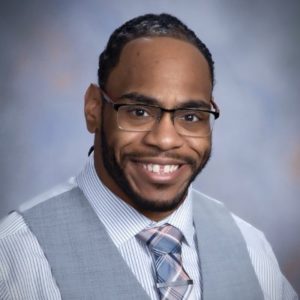 MELVIN J. KELLEY IV
MELVIN J. KELLEY IV
Associate Professor, Law and Business, School of Law and D’Amore McKim School of Business
Project: No Further Fair Housing: Stuck in Transition on the Path to Transformation
The Fair Housing Act of 1968 requires that the U.S. Department of Housing and Urban Development as well as recipients of federal funds under its programs, “affirmatively further fair housing,” which entails a mandate to proactively redress the harms of segregation. Professor Kelley’s research examines whether approaches from the human rights field of transitional justice might assist in the interpretation and implementation of this controversial statutory provision. During his fellowship year he will convene scholars in a range of disciplines who are exploring how to remediate enduring legacies of historical race-based oppression to assist in the evaluation of prospects for redressing contemporary inequities in real property ownership and regional maldistributions of resources across racialized spaces.
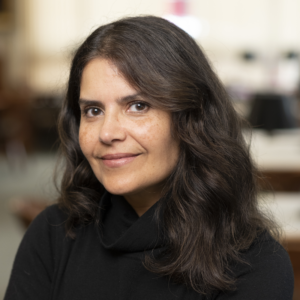 ANA M. RIVERA
ANA M. RIVERA
Associate Clinical Professor and Director, Housing Rights Clinic, School of Law
Project: Housing Discrimination in the COVID Era
In her experience as a practicing housing rights lawyer, Professor Rivera litigated cases involving residential leasing practices that disparately affected BIPOC and tenants from poor communities. These practices prevailed in the COVID era and exacerbated exponentially the pressures on renters and recipients of benefits such as ERAP (Emergency Rental Assistance Program) and Section 8 support. During her fellowship year, Professor Rivera will examine how facially neutral leasing provisions intersect with federal, local, and state housing laws and regulations, and potential reforms to address their harmful impact.
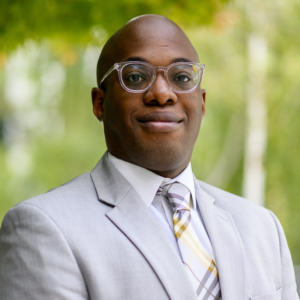 EVAN DARRYL WALTON
EVAN DARRYL WALTON
Associate Clinical Professor and Director, Community Business Clinic
Project: Hidden Barriers to Small Business Growth and their Disproportionate Effect on BIPOC and Female Entrepreneurs
In the course of his practice, Professor Walton encountered barriers to business growth in the form of direct and indirect costs that disproportionately impact new entrants in commercial spaces, including his BIPOC business clients. Drawing on his experiences as a practitioner, Professor Walton will examine the effects of these barriers on new entrants through a comparison of the rules and practices of three states. He will examine the impact of costs such as LLC registration, maintenance fee structures, and incentives for economic business zones. Professor Walton hopes to interest students in this project, which will include qualitative study and comparative legal analysis.
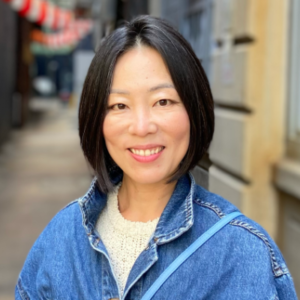 LILY SONG
LILY SONG
Assistant Professor, Race and Social Justice in the Built Environment, Northeastern University’s College of Arts, Media and Design
Project: The ARTery: Re-imagining and Re-formulating Spatial Planning and Development with Local Communities in Roxbury
Professor Song, an urban planner and activist-scholar who studies long-term community engagement practices, will partner with Boston public officials to design cultural interventions that target the gentrification trends and displacement pressures in Roxbury. The ongoing ARTery project seeks to use public art to amplify cultural identity, economic opportunity and social cohesion among neighborhood residents. Professor Song will work with community-based artists, activists and small business owners to generate public art, and assess the strengths, tensions and opportunities of the ARTery project. This project will inform her research into the ways in which spatial planning and design practices can incorporate, deepen and reflect conversations on reparations and transitional justice.
2022 CLEAR CRIMINAL JUSTICE FELLOW
 REBECCA CHAPMAN
REBECCA CHAPMAN
Social Justice Teaching Fellow, Legal Services in Social Context Program, School of Law
Project: Jails: The Black Box of Mass Incarceration
Professor Chapman’s fellowship projects speak to the jail to prison pipeline, using her previous experience as a public defender in New York City. Her work focuses on racialized jail incarceration in New York City, and, secondly and relatedly, the vacuum in rights protection for families exposed to the city’s child protective services system. In collaboration with social justice organizations, public defender groups in New York, and her students at Northeastern Law, Professor Chapman will track and report on the effects of individual judicial attitudes on jail incarceration rates in New York City. As one intervention in the jail-to-prison pipeline, she also proposes to develop empirical and qualitative evidence to support the efforts of The Bronx Defenders, a New York public defender organization, to promote state legislation that would protect the right of families to be informed of their legal rights at their first point of contact with workers from the child protection system.
2022 CLEAR IMMIGRATION JUSTICE FELLOW
 RACHEL ROSENBLOOM
RACHEL ROSENBLOOM
Professor, School of Law
Project: Citizenship for Some: White Nationalism and the Long Roots of the Movement to Restrict Constitutional Birthright Citizenship
Professor Rosenbloom’s fellowship year will allow her to pursue her book project, Citizenship for Some: White Nationalism and the Long Roots of the Movement to Restrict Constitutional Birthright Citizenship. Tracing the origins of the contemporary movement to limit birthright citizenship, Professor Rosenbloom’s work examines the numerous efforts of anti-immigrant activists in the late nineteenth and early twentieth centuries to restrict the scope of the Citizenship Clause of the Fourteenth Amendment through litigation and proposed constitutional amendments. It also explores the more hidden, bureaucratic life of the Citizenship Clause, manifested in agency records, court dockets, personal accounts and other materials relating to the determinations that occur, day in and day out, at borders, immigration courts, State Department offices, county jails and numerous other sites where citizenship lines are drawn. Professor Rosenbloom argues that despite the Fourteenth Amendment’s guarantee of citizenship without regard to race, birthright citizenship’s racialized origins have shown a persistent tendency to resurface in the context of immigration enforcement efforts. Whether targeting Chinese Americans during the Chinese Exclusion era, Mexican-Americans in the 1930s, or in recent decades, a broad spectrum of Black and brown Americans have been swept up by a racialized mass deportation system that has become increasingly intertwined with a racialized system of mass incarceration.
Center for Law, Information and Creativity (CLIC)
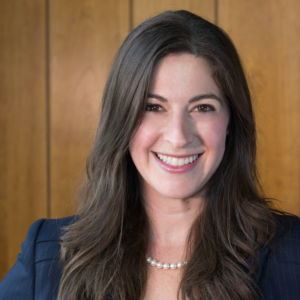 ALEXANDRA ROBERTS
ALEXANDRA ROBERTS
Professor of Law and Media, School of Law and Department of Music, College of Arts, Media and Design
Project: Multi-level Lies
Professor Roberts’ research explores the laws and regulations that govern misleading marketing claims made by and through lay sellers in the context of multi-level marketing companies (MLMs), including federal and state false advertising law and FTC and other agency regulations. MLMs are companies that sell products primarily or exclusively through non-salaried lay sellers. They are typically pyramidal in structure: people who sign up to sell products for the company have an initial or recurring buy-in and can earn money both by selling to friends and by recruiting others to sell—though the vast majority of sellers make no money at all. Many MLMs specialize in “wellness” products like essential oils, health and weight loss supplements, and beauty products. While questions about whether and when an MLM constitutes an illegal pyramid scheme have been researched and litigated, less attention has been paid to the regulation of marketing claims about the products themselves—regulation made particularly difficult by the fact that those claims are primarily disseminated by individual laypeople to small groups of friends or followers. Professor Roberts will review MLM seller contracts and instructions and interview MLM participants to gain a better understanding of how lay sellers understand and interpret the guidance provided.
Center for Public Interest Advocacy and Collaboration (CPIAC)
The Center for Public Interest Advocacy and Collaboration (CPIAC) is pleased to host two Faculty Fellows who will contribute research and scholarship in furtherance of CPIAC’s mission, and in particular the Cradle-to-Prison Pipeline Project.
Since 2019, CPIAC has spearheaded the Cradle-to-Prison Pipeline Project, a collaboration among CPIAC; the College of Arts, Media and Design; Department of Sociology and Anthropology at the College of Social Sciences and Humanities; and Boston Area Research Initiative. The project is building a holistic model of contributors to mass incarceration in Massachusetts in order to identify and validate policy interventions and provide a framework for other states, while also connecting stakeholders to facilitate identification of collective interest and scalable solutions.
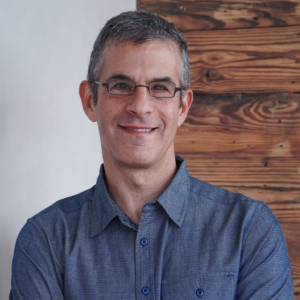 DANIEL MEDWED
DANIEL MEDWED
University Distinguished Professor of Law and Criminal Justice
Project: The Bay State Boomerang: The Extent to Which Petty Infractions Violate Probation and Parole in Massachusetts
Professor Medwed’s book—Barred: Why the Innocent Can’t Get Out of Prison—to be published in September 2022, focuses on procedural barriers to freeing innocent prisoners, one of which concerns the parole process and the opaque and problematic criteria parole boards often use in making release decisions. During his fellowship with CPIAC, Professor Medwed will build on his scholarship on parole and probation. Specifically, his project will focus on how relatively minor transgressions can lead to a finding that someone has violated the conditions of their probation or parole and how that finding tends to result in imprisonment, adding to the problem of mass incarceration. This research will inform a white paper on these practices, with recommendations for reform.
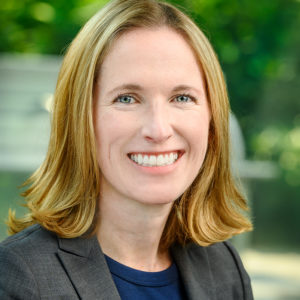
PROFESSOR STEFANIE (STEVIE) LEAHY
Assistant Teaching Professor and Resident Fellow, Center for Public Interest Advocacy and Collaboration
Project: The Cradle to Prison Pipeline: A Deeper Dive Into Juvenile Sentencing and How the Legal System Channels Historically Underrepresented Groups Into Incarceration
The Massachusetts Superior Court recently issued a decision that the prohibition on Juvenile Life Without Parole (JLWOP) should extend beyond age 18. This is a developing area of law not only in the commonwealth, but nationally. Professor Leahy will lead two Legal Skills in Social Context projects furthering work to decrease juvenile incarceration and sentencing and further disrupt the cradle-to-prison pipeline—both with partners represented on CPIAC’s Cradle-to-Prison Pipeline Advisory Board. This research will lead to creation of a bench card related to juvenile sentencing. She will additionally publish and present on her research in the Mercer Law Review Symposium edition Prologue: Legal Narratives and the Law’s Potential for Justice and Injustice (forthcoming 2023). Her article will highlight the way narrative is used (or ignored) in juvenile sentencing decisions and highlight the myriad factors that impact an individual’s final outcome. As a fellow, Professor Leahy will organize an event at the law school: A Conversation with William Allen: Correcting a Fundamental Unfairness through the Clemency Process. The event will bring William Allen, a prominent recipient of a rare LWOP commutation, and his attorney, to Northeastern to discuss his experience.
About Northeastern University School of Law
The nation’s leader in experiential legal education since 1968, Northeastern University School of Law offers the longest-running, most extensive experience-based legal education program in the country. Northeastern guarantees its students unparalleled practical legal work experiences through its signature Cooperative Legal Education Program. More than 1,000 employers worldwide in a wide range of legal, government, nonprofit and business organizations participate in the program. With a focus on social justice and innovation, Northeastern University School of Law blends theory and practice, providing students with a unique set of skills and experiences to successfully practice law.
For more information, contact d.feldman@northeastern.edu